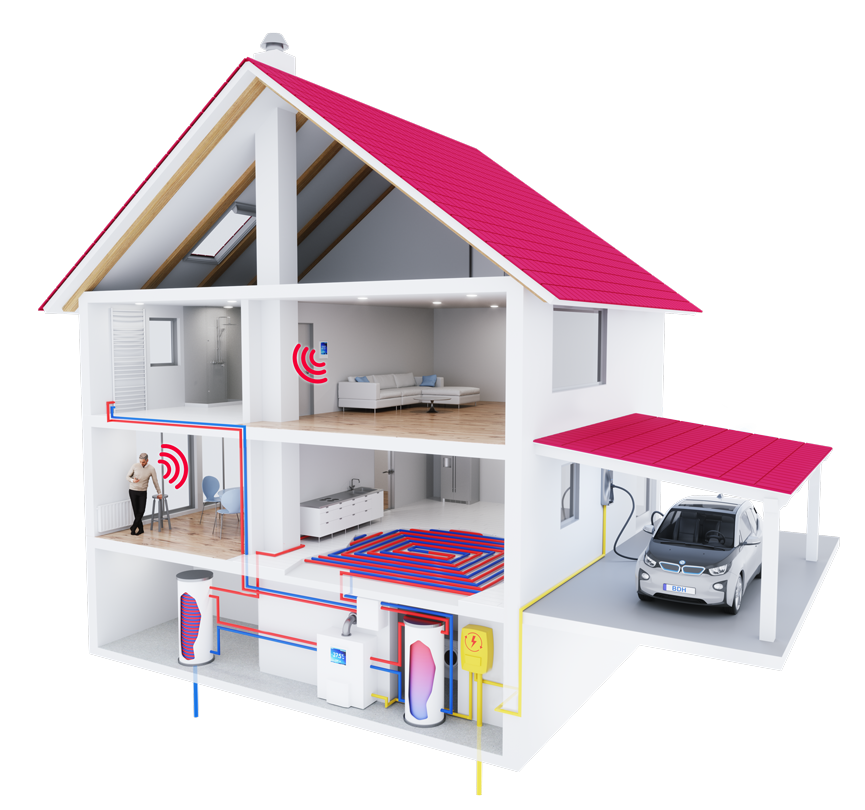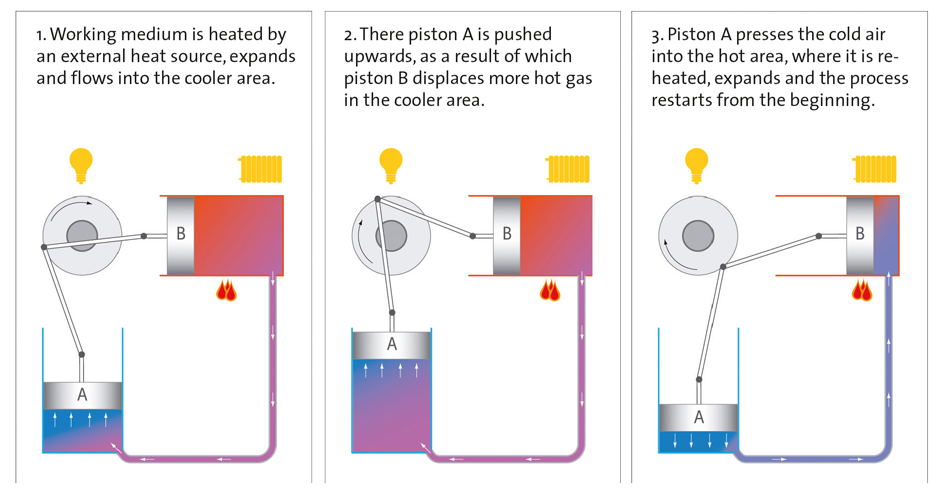Normally, heating systems always use the same working principle: Energy is used to generate heat. Heating which generates electricity, also known as decentralised CHP (cogeneration of heat and power), on the other hand, generates both electricity and heat at the same time. Its high overall efficiency of up to 95% makes it particularly efficient and eco-friendly.
Conventional power plants don't use the heat which is produced while generating electricity. In case of cogeneration of heat and power, however, this heat is used to operate heaters and prepare hot water. If excess electricity is generated, this can be fed into the network and sold. If the self-generated electricity is also used internally, then the use of CHP can not only reduce the heating costs, but also the electricity costs at the same time.
Powered by engines
Most of the micro-CHP systems use combustion engines, for example, the conventional petrol engines like the ones used in cars, or Stirling engines, where the combustion of gas or oil takes place outside the closed drive system. The heat dissipated in the process flows directly into the heating system.
In addition, there are systems that work with a fuel cell. In contrast to conventional CHP engines, the fuel cell acts like an electrochemical device and converts the chemical energy of a fuel directly into electricity. The heat generated can be used for heating purposes as well.
Brennstoffzelle – mehr als nur Wärme
Die Brennstoffzellentechnik zählt zum Spannendsten, was der Heizungsmarkt derzeit zu bieten hat. Die innovative Technologie schickt sich an, den deutschen Markt zu erobern und gilt als Heizung der Zukunft. Die Brennstoffzellenheizung versorgt zuverlässig, zukunftssicher und höchsteffizient Ihren Haushalt mit Wärme und Strom. Dabei überzeugt sie mit einem äußerst niedrigen Energieverbrauch und schont die Umwelt durch einen geringen Ausstoß an Treibhausgasen.


